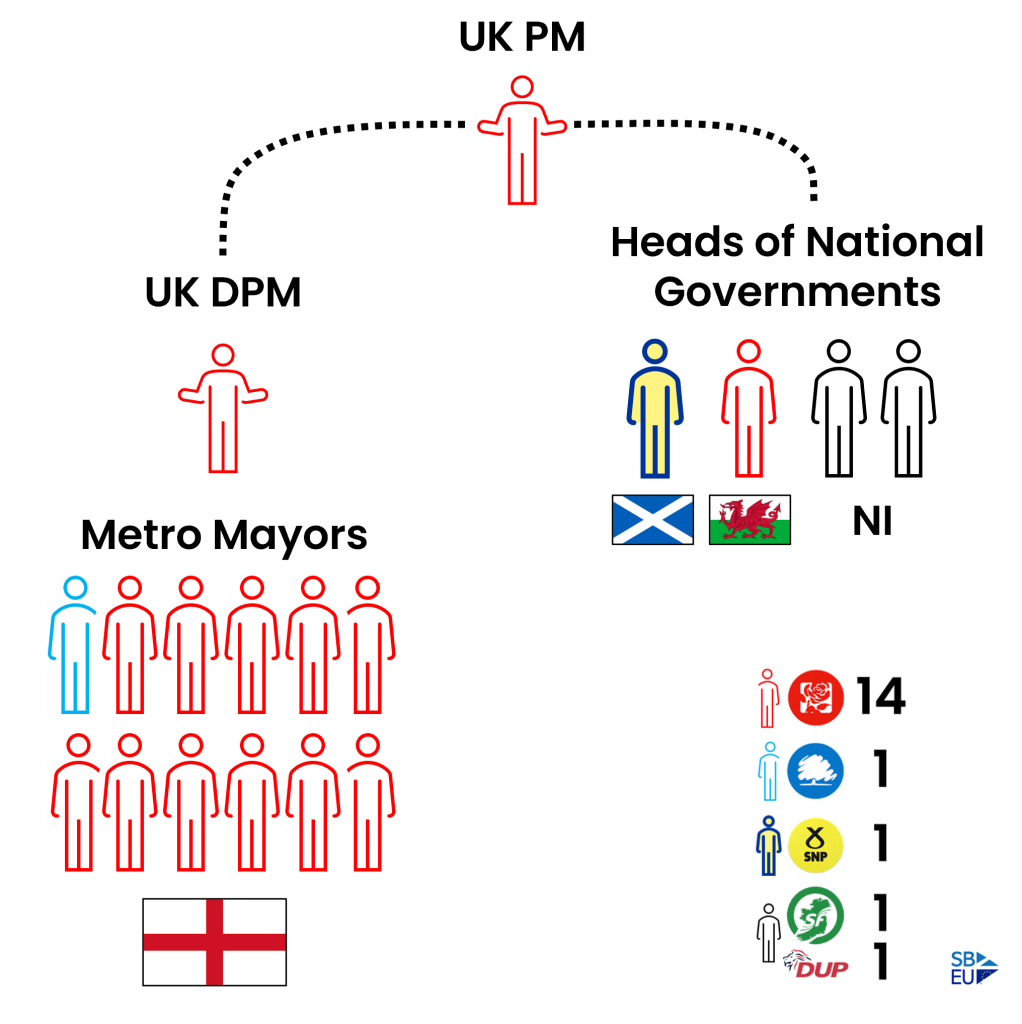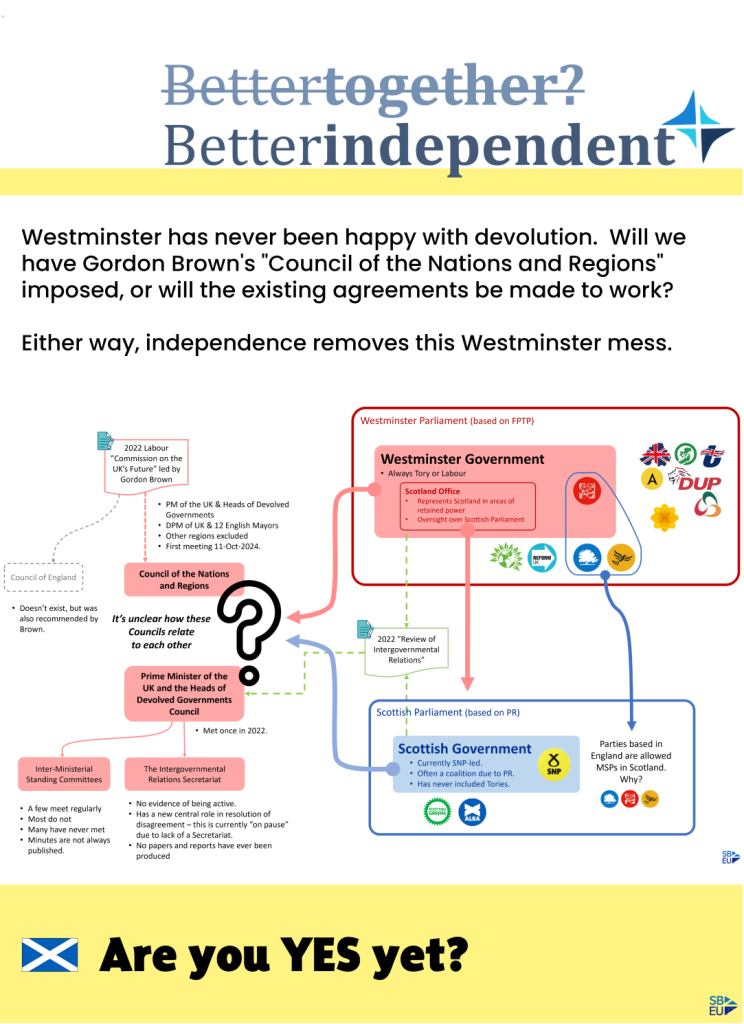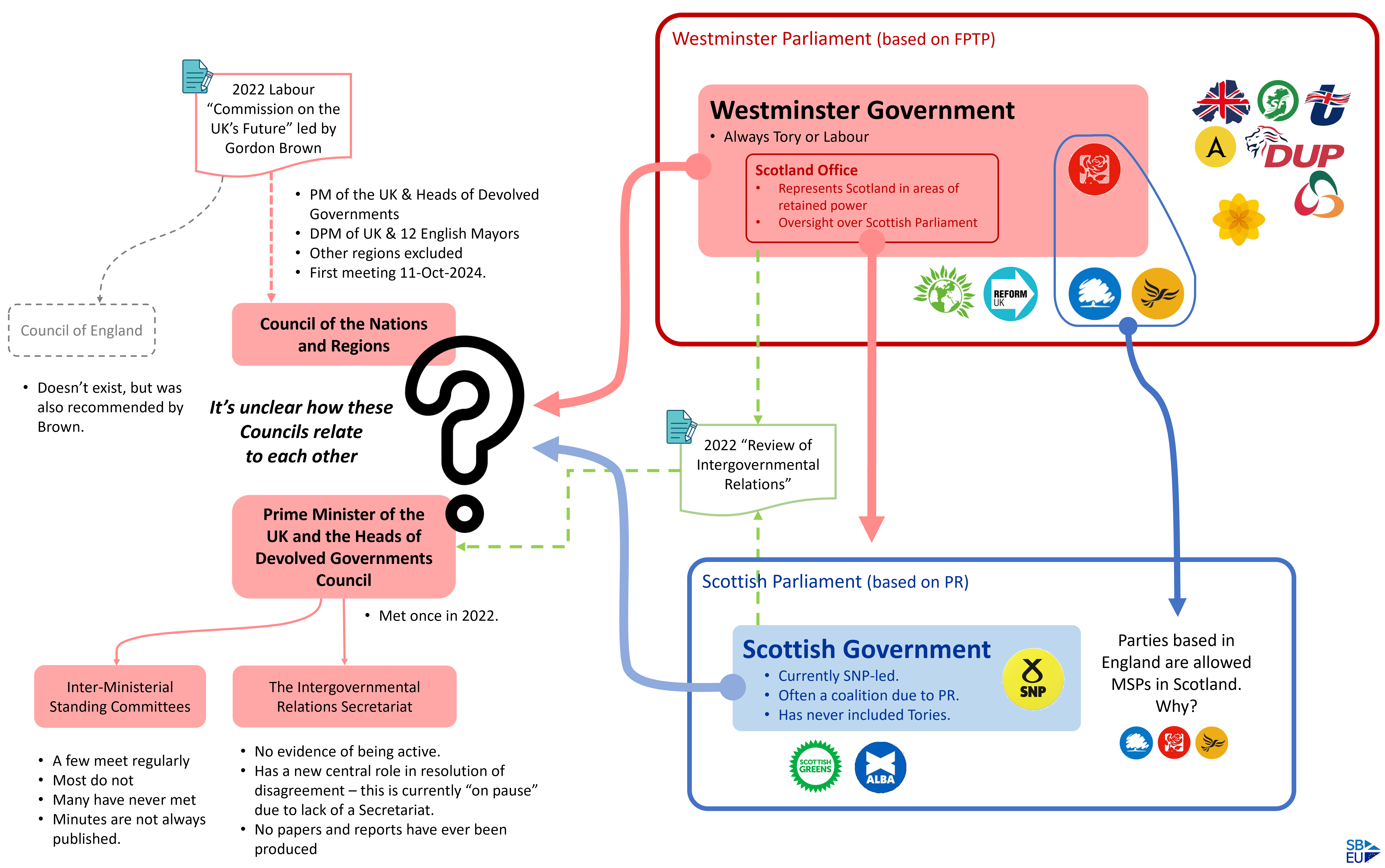Westminster has never been happy with devolution. The way the UK works with national governments has never been a success. It’s been a history of broken promises and half-arsed solutions implemented with no commitment for success.
Will we have Gordon Brown’s “Council of the Nations and Regions” imposed by a Labour government at Westminster, or will the existing agreements be made to work?
Either way, independence removes Westminster’s mess.
The 2022 Westminster Review
In 2022 two reviews were published on the state of the UK and the dysfunctional way in which Westminster worked with the National Governments, such as Scotland’s.
Westminster published the recommendations of a Review that all Nations and Governments participated in [1]. These recommendations were then implemented, led by a new “Prime Minster of the UK and Heads of Devolved Governments Council”. This first met in 2022. It oversaw a large range of Inter-Ministerial Standing Committees to foster closer cooperation, as well as an Intergovernmental Relations Secretariat to manage the process for any disagreement.
All good so far. A much better structure, agreed by all Governments. But the Council has only met once, the Secretariat barely exists, the disagreement process is nonexistent, and most of the Standing Committees either don’t exist or have hardly met.
The 2022 Gordon Brown Review
Labour weren’t part of the Westminster Review – they weren’t in Government – so they got their trusted Scot Gordon Brown to run yet another “Commission on the UK’s future” [2].
To prepare his report, Brown used various public sources – polls, media reports – as well as Labour friends. No National Governments were consulted, and none agreed its findings. Labour used this Review to inform its 2024 Westminster election manifesto – but interestingly, only in a watered down way.
The Review recommends two Councils to improve Westminster relations with the rest of the UK: a Council of the Nations and Regions, and a Council of England. The Council of England was designed to bring the Westminster Deputy PM and English Metro Mayors (virtually all Labour) closer to Westminster. The main Council of Nations remained a matter for the Westminster PM and the heads of National Governments.
In Labour’s 2024 manifesto it ignored the Council of England, and only mentioned the main Council [3]. And in a political slight of hand, when Labour took its turn at Westminster Government, this main Council was created because of its “manifesto promise” – but with the role of the Council of England quietly rolled into it!

So the “Council of Nations and Regions” has 18 members – 14 from Labour, and 12 English metro mayors. Only England has “regions” represented. How will this work in practice? What is its Terms of Reference? Who agreed it?
So where does Devolution stand now?
Labour seems to be ignoring the agreed Westminster Review recommendations in favour of its unilateral imposition of the Brown Review. So far it hasn’t clarified this conflict.
From the perspective of our Scottish Government, inter-government relations are simply more complicated, time consuming – and ineffective.
In parallel the Westminster Government seems keen to re-shape the role of the Scotland Office. The Scotland Office supposedly exists primarily to represent Scotland in power areas retained by Westminster. It has a secondary purpose to “oversee” the Scottish Parliament – increasingly this feels like “interfer with”. The Westminster Government has also voiced a desire for the Scotland Office to work more directly with Scotland’s local councils – which is currently outside its remit and squarely within the area of Devolved Powers held by the Scottish Government.
Finally, why is it that policial parties based in England, controlled from England, and largly funded from England – like Labour, the Tories, the Liberal Democrats and Reform – are able to campaign for seats in the Scottish Parliament? This strange arrangement has existed since the Scottish Parliament re-opened in 1999, and is taken for granted. What’s the justification?

According to the UK Electoral Commission [4] there are currently 125 Political Parties registered in England, that have also registered to field candidates in Scotland. These parties can legally stand candidates for membership of the Scottish Parliament! There are 16 Parties that are registered only in Scotland – surely that’s enough, and surely they should be the ones making up our Parliament?

Sources
[1] The Review of Intergovernmental Relations, 2022, UK Government
[2] Gordon Brown’s Commission on the UK’s future, 2022, Labour Party
[3] Labour Party Manifesto, 2024, Labour Party
[4] Registered Political Parties, Electoral Commission

Leave a Reply